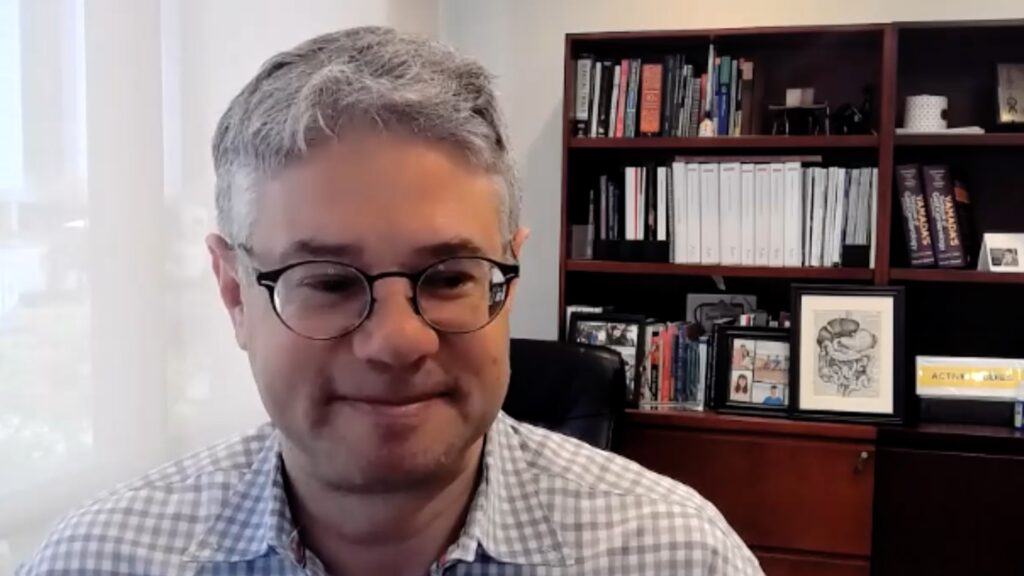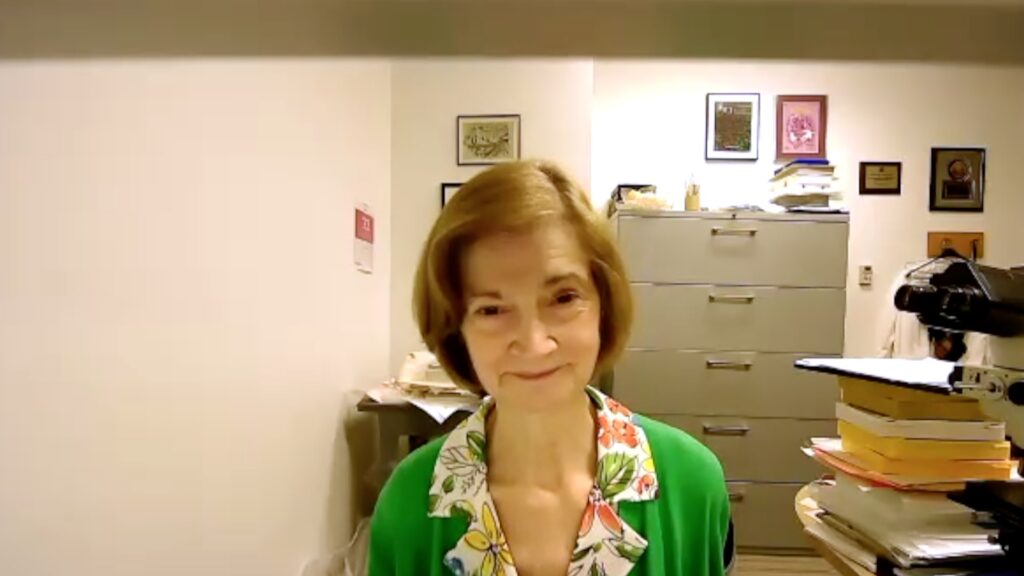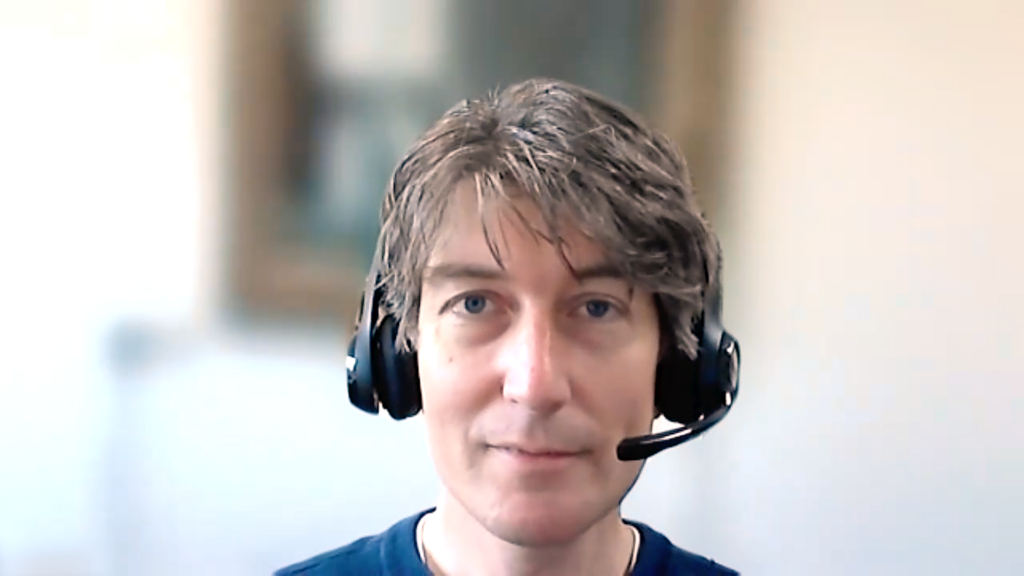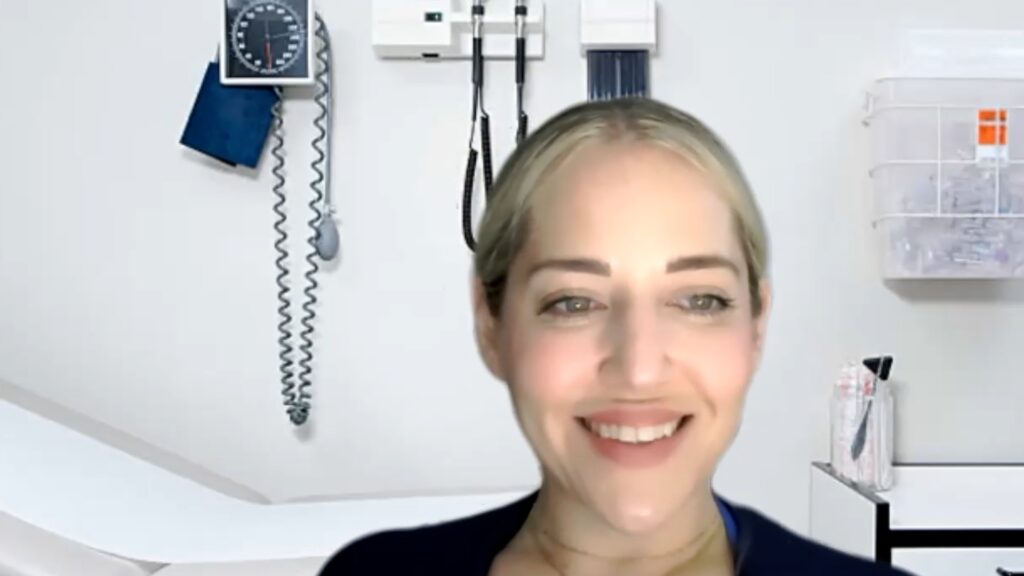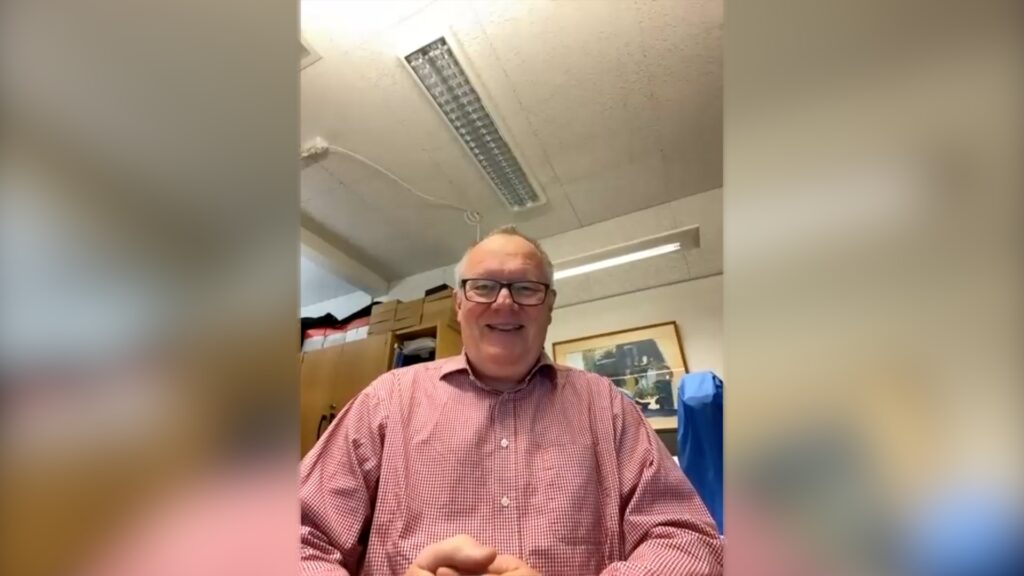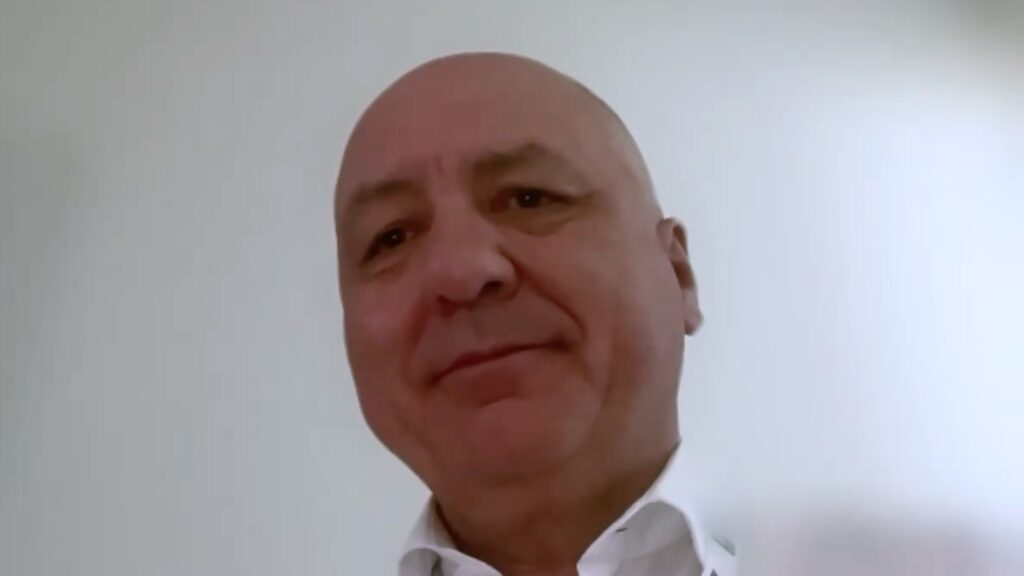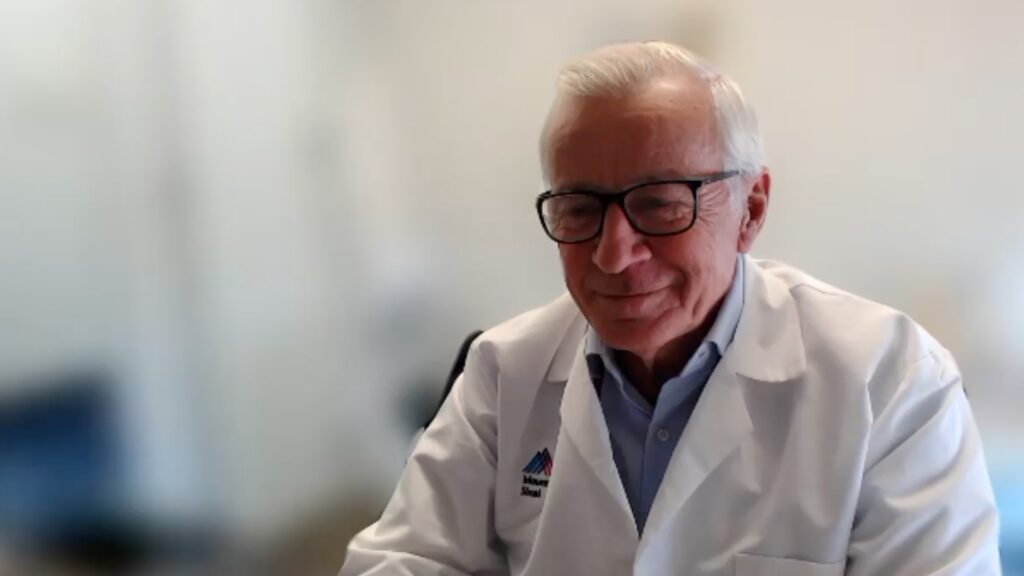 Each year, the United European Gastroenterology (UEG) organisation awards a prestigious €50,000 Research Prize to recognise excellence in basic science, translational or clinical research. This award is intended to support future innovative scientific research projects from inception to completion, highlighting their transformative potential to improve patient care.
Each year, the United European Gastroenterology (UEG) organisation awards a prestigious €50,000 Research Prize to recognise excellence in basic science, translational or clinical research. This award is intended to support future innovative scientific research projects from inception to completion, highlighting their transformative potential to improve patient care.
This year’s award celebrates the outstanding contributions of Dr Enrique de-Madaria, a Gastroenterologist and Coordinator of the Biliary-Pancreatic Unit at Dr Balmis Hospital in Alicante, Spain. With over a decade dedicated to advancing fluid resuscitation in acute pancreatitis, his multicentre studies—conducted through national and international collaborations—have not only shaped clinical practice but also set new standards for care.
Following his recognition by UEG, we had the privilege of speaking with Dr de-Madaria about his inspiring research journey, the lessons he has learned, and his advice for aspiring physician-scientists. He also shared insights into the ambitious WATERLAND study, discussed how the UEG Research Prize will advance this work, and reflected on what this accolade means to him both professionally and personally.
Q. What key lessons have you learned from your research journey over the past decade?
One of the first key lessons I learned was how to conduct research and write scientific articles during my initial observational studies. This experience taught me the fundamentals of clinical research.
Another key realization was that, to make a real impact on clinical practice and drive progress, I needed to focus my efforts on designing and conducting randomized clinical trials. My first trial, published in 2018, was challenging and took six years from design to publication. However, with the experience I gained, subsequent trials have become much more manageable.
I have also learned that international collaborative clinical trials are achievable if you focus on a compelling research question, develop a robust study design, and invest significant effort in disseminating the projects through channels such as social networks and scientific associations. In fact, some of the lessons and steps I have learnt during my journey are detailed in my clinical research blog: https://demadaria.substack.com/.
Q. Could you tell us about the WATERLAND study and how you hope it will impact patient care in acute pancreatitis?
The WATERLAND study (NCT05781243) is an international, multicentre randomized controlled trial spanning 13 countries across four continents.1 It compares lactated Ringer’s solution (LR) with normal saline (NS) for fluid resuscitation in acute pancreatitis (AP), a crucial aspect of early AP management. Emerging evidence suggests that LR may provide anti-inflammatory benefits over NS, potentially improving patient outcomes. However, previous studies have been limited in size and have yielded inconsistent results, highlighting the need for this larger-scale trial.
This trial involves 792 patients who are randomized to receive either LR or NS for at least 48 hours, following a moderate hydration protocol. The primary outcome is the incidence of moderately severe or severe AP, defined by local complications, organ failure, or worsening of comorbidities. Secondary outcomes include safety assessments, ICU admission rates, hospital stay duration, and more.
The study aims to provide definitive evidence on the best fluid for AP resuscitation. If LR is shown to reduce disease severity, it could become the preferred choice, improving patient outcomes and reducing complications. This would mark a major step forward in the global management of AP, a condition associated with significant morbidity and healthcare costs.2 The findings from WATERLAND have the potential to shape clinical guidelines, ensuring evidence-based and more effective care for AP patients worldwide.
Q. How will the UEG Research Award support your work, and what does receiving this recognition mean to you personally and professionally?
Receiving the UEG Research Prize is a tremendous honour that validates the importance of our work on acute pancreatitis, specifically our work done through the WATERFALL study,3 in which we investigated aggressive versus moderate fluid resuscitation in AP, and which was published in New England Journal of Medicine (NEJM) in 2022, and the ongoing WATERLAND study. This award provides crucial funding to further our research, allowing us to rigorously investigate fluid resuscitation strategies aimed at improving patient outcomes.
On a personal level, it’s a moment of pride and gratitude, reflecting years of dedication to gastroenterology. Professionally, it reinforces the value of collaboration within the scientific community and highlights the global relevance of pancreatitis research. This recognition inspires me to continue pursuing impactful, evidence-based solutions for patient care in gastroenterology.
Q. Collaboration has been a big part of your success—what advice would you give to researchers looking to build strong networks and pursue impactful studies?
Collaboration is the cornerstone of impactful research. My advice to researchers is to actively engage with multidisciplinary teams, as diverse expertise enriches study design and outcomes. Build trust through transparent communication and mutual respect, and seek opportunities to contribute to ongoing projects before leading your own. Attend conferences, join professional societies, and leverage platforms such as UEG for networking and partnerships. Focus on common goals that address meaningful clinical questions and prioritise patient-centred research. Strong collaborations thrive on a shared vision, perseverance, and the willingness to learn from one another, ultimately driving progress and creating a lasting impact in the field.
Q. As someone who has made such an impact in the field, what would you say is the ‘secret’ to achieving meaningful progress and success in medical research?
The ‘secret’ to achieving meaningful progress in medical research lies in curiosity, persistence, and collaboration. It begins with identifying clinically relevant questions that address unmet patient needs and building a solid foundation in research methodology while embracing lifelong learning.
Collaboration is key—working with diverse experts brings fresh perspectives and strengthens projects. Resilience is equally important; setbacks are inevitable, but each challenge provides an opportunity to learn and grow.
Above all, stay patient-focused. Their needs should guide your efforts and inspire your research direction. Finally, communicate your findings effectively, ensuring they are translated into practice. Success in research is not just about discovery but about driving meaningful change that improves lives.
References:
- Guilabert L, et al. Normal saline versus lactated Ringer’s solution for acute pancreatitis resuscitation, an open-label multicenter randomized controlled trial: the WATERLAND trial study protocol. Trials. 2024 Oct 21;25(1):699. doi: 10.1186/s13063-024-08539-2.
- Iannuzzi JP, et al. Global Incidence of Acute Pancreatitis Is Increasing Over Time: A Systematic Review and Meta-Analysis. Gastroenterology. 2022 Jan;162(1):122-134. doi: 10.1053/j.gastro.2021.09.043. Epub 2021 Sep 25.
- de-Madaria E, et al. Aggressive or Moderate Fluid Resuscitation in Acute Pancreatitis. N Engl J Med. 2022 Sep 15;387(11):989-1000. doi: 10.1056/NEJMoa2202884.
Disclosures: Dr Enrique de-Madaria has nothing to disclose in relation to this article.
Support: No funding was received in the publication of this short article.
Interviewer: This interview was conducted by Gina Furnival, Senior Editorial Director
Cite: de-Madaria E. Advancing Acute Pancreatitis Care: Insights from UEG Research Prize Awardee Enrique de-Madaria. touchIMMUNOLOGY. 9 December, 2024.
More content in Digestive Diseases

